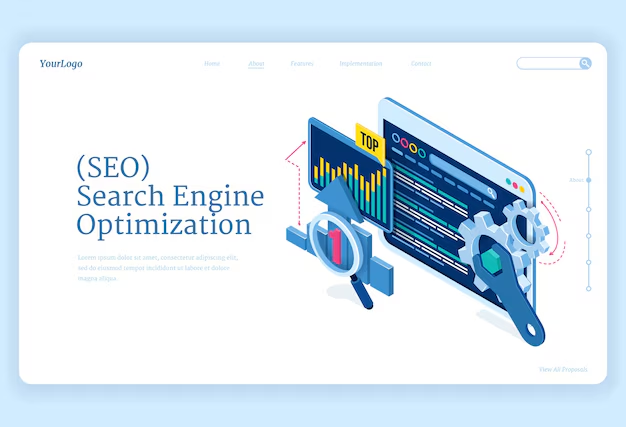
Table of Contents
Introduction
In today’s digital landscape, social media marketing has become a vital strategy for businesses looking to enhance their online presence and engage with their audience. With platforms such as Facebook, Instagram, Twitter, and LinkedIn housing billions of users, the opportunities for driving traffic to your website are unparalleled. This article will delve into the top 10 benefits of social media marketing, illustrating how it can transform your website into a powerful tool for growth, engagement, and connection.
1. Increased Website Traffic

One of the primary advantages of social media marketing is its ability to drive significant traffic to your website. By sharing engaging and relevant content on social media platforms, you create numerous pathways for users to discover and visit your site. Each post, tweet, or share acts as a bridge to your website, where users can explore your products, services, or information.
To maximize traffic, consider these strategies:
- Use Compelling Headlines: Create eye-catching headlines that encourage users to click.
- Leverage Hashtags: Utilize relevant hashtags to increase the visibility of your posts.
- Engage with Your Audience: Prompt users to visit your site by asking questions or encouraging comments that lead them to your content.
According to a study by HubSpot, social media is the second most popular source for driving website traffic, highlighting its crucial role in modern marketing strategies.
2. Enhanced Brand Visibility
Social media marketing plays a significant role in improving brand visibility. By actively engaging on various platforms, businesses can increase their brand’s recognition and make it more accessible to potential customers. The more frequently your brand is mentioned and shared, the more likely it is to be recognized.
Key tactics for enhancing brand visibility include:
- Consistency: Post regularly to maintain a constant presence in your audience’s feeds.
- Visual Content: Use high-quality images and videos to capture attention.
- Cross-Promotion: Share your social media posts on different platforms to broaden your reach.
Increased visibility leads to greater brand awareness, making it easier for potential customers to remember and choose your brand over competitors.
3. Lead Generation and Conversion Opportunities
Social media marketing is a powerful tool for generating leads and driving conversions. By sharing enticing content, promotions, and calls to action, businesses can direct users to specific landing pages designed to capture leads. For instance, offering exclusive content, discounts, or freebies in exchange for email subscriptions can effectively nurture leads and convert them into customers.
To optimize lead generation, consider these strategies:
- Use Targeted Ads: Social media platforms offer sophisticated targeting options that allow you to reach specific demographics and interests, maximizing your chances of conversion.
- Create Lead Magnets: Develop valuable resources (e.g., eBooks, webinars) that require users to provide their contact information.
- Engage with Your Audience: Interact with users through comments and messages to build trust and encourage conversions.
According to a study by Sprout Social, 54% of users utilize social media to research products before making a purchase, emphasizing the importance of a strong social media presence in the customer journey.
4. Improved SEO Rankings

While social media signals may not directly impact SEO rankings, the relationship between social media marketing and search engine optimization (SEO) is undeniable. Increased engagement on social media can lead to more traffic, longer session durations, and lower bounce rates—all of which are positive indicators for search engines.
Here are some ways social media can improve SEO:
- Content Promotion: Sharing your website content on social media increases the chances of backlinks, which are crucial for SEO.
- User Engagement: Engaging content can lead to more shares and interactions, indicating to search engines that your content is valuable.
- Brand Authority: A robust social media presence can help establish your brand as an authority in your industry, boosting your credibility and search rankings.
Incorporating social media into your overall marketing strategy can significantly enhance your SEO efforts and improve your website’s visibility.
5. Cost-Effective Marketing Strategy

Compared to traditional advertising methods, social media marketing offers a cost-effective solution for businesses of all sizes. Most platforms allow free account creation and content sharing, making it accessible for startups and small enterprises. Even when using paid advertising, social media platforms provide affordable options that can be highly targeted, ensuring your marketing budget is spent efficiently.
To maximize your cost-effectiveness, consider:
- Utilizing Organic Reach: Focus on building a loyal following through organic content before investing heavily in paid ads.
- Testing Different Strategies: Experiment with various types of content and ad formats to determine what resonates most with your audience.
- Analyzing Performance: Use analytics tools to track the performance of your social media campaigns and adjust your strategies accordingly.
By strategically utilizing social media, businesses can achieve substantial marketing results without breaking the bank.
6. Direct Communication with Customers
One of the most significant benefits of social media marketing is the ability to communicate directly with your audience. Social media platforms facilitate real-time interactions, allowing businesses to engage with customers through comments, messages, and posts. This direct communication fosters a sense of community and trust, making customers feel valued and heard.
To enhance direct communication, consider these practices:
- Respond Promptly: Address customer inquiries and feedback in a timely manner to show that you value their input.
- Encourage Interaction: Create polls, Q&A sessions, or live videos to engage your audience and encourage participation.
- Share User-Generated Content: Highlight content created by your customers to foster community and show appreciation.
Establishing direct communication with customers can lead to increased loyalty and repeat visits to your website.
7. Content Promotion and Amplification
Using social media to promote content is one of the most effective strategies for amplifying your message. By sharing blog posts, videos, and other valuable resources, businesses can reach wider audiences and drive traffic to their websites. The viral nature of social media allows content to spread quickly, increasing visibility and engagement.
To maximize content promotion, consider:
- Creating Shareable Content: Develop content that resonates with your audience and encourages sharing.
- Utilizing Different Formats: Experiment with various content formats, such as videos, infographics, and podcasts, to attract diverse audiences.
- Engaging Influencers: Collaborate with influencers in your industry to reach their followers and expand your content’s reach.
Effective content promotion on social media can significantly enhance your website’s traffic and visibility.
8. Reputation Management
Managing your brand’s reputation is crucial, and social media marketing provides a platform for addressing customer concerns and feedback swiftly. Proactively engaging with users and responding to negative comments can help maintain a positive brand image. This open communication can lead to increased customer trust and loyalty, resulting in more visits to your website.
Strategies for effective reputation management include:
- Monitoring Mentions: Use tools to track mentions of your brand across social media platforms.
- Responding Professionally: Address negative feedback constructively and professionally to show that you care about your customers’ experiences.
- Highlighting Positive Reviews: Share positive testimonials and success stories to reinforce your brand’s credibility.
By effectively managing your online reputation, you can enhance customer trust and drive more traffic to your website.
9. Networking and Building Partnerships

Social media platforms are excellent venues for networking with industry professionals, influencers, and potential partners. Building relationships within your industry can lead to valuable collaborations and guest blogging opportunities, driving traffic and enhancing your website’s authority.
To leverage social media for networking, consider:
- Joining Relevant Groups: Participate in industry-related groups on platforms like LinkedIn and Facebook to connect with like-minded professionals.
- Engaging with Influencers: Comment on and share content from industry influencers to build relationships and gain visibility.
- Collaborating on Content: Partner with other brands or individuals to co-create content, expanding your reach and audience.
Networking through social media can lead to valuable connections that benefit your website and overall business strategy.
10. Better Customer Insights

Social media analytics tools provide valuable insights into your audience’s behavior and preferences. Understanding what resonates with your audience allows you to refine your content and marketing strategies. By tailoring your approach based on data, you can create targeted campaigns that enhance engagement and drive more traffic to your website.
To gain better customer insights, consider:
- Analyzing Engagement Metrics: Track likes, shares, and comments to understand which types of content perform best.
- Conducting Surveys: Use social media to gather feedback from your audience on their preferences and interests.
- Monitoring Trends: Stay updated on industry trends and customer preferences to adapt your strategies accordingly.
By leveraging customer insights from social media, businesses can create more effective marketing strategies that resonate with their audience.
Conclusion
In summary, social media marketing offers a multitude of benefits that can significantly enhance your website’s visibility, engagement, and overall success. From driving traffic and improving SEO to fostering direct communication with customers, the advantages are clear. By incorporating a comprehensive social media marketing strategy, businesses can create meaningful connections with their audience and pave the way for sustained growth in the competitive digital landscape. Embrace the power of social media marketing to elevate your online presence and achieve your business goals.


Add a Comment